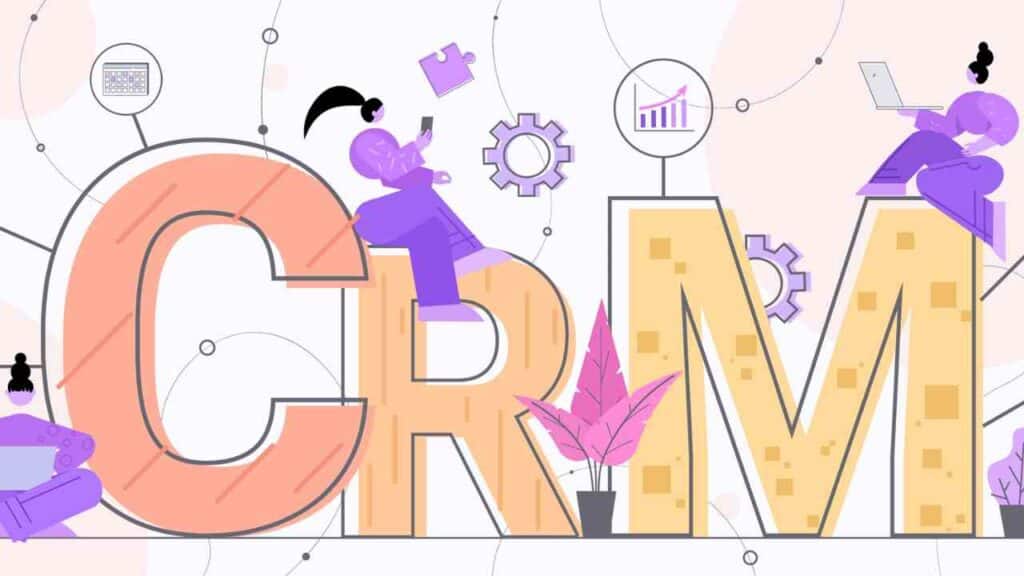Gauging Impact of Campaigns with CRM

When it comes to running successful marketing campaigns, understanding their impact is crucial. Without proper measurement and analysis, it becomes challenging to determine the effectiveness of your efforts and make data-driven decisions for future campaigns. This is where Customer Relationship Management (CRM) systems play a vital role. In this article, we will explore how CRM can help gauge the impact of campaigns and provide valuable insights for businesses. We will also discuss the benefits of using an all-in-one sales and marketing platform like SaasExpert.ca for small businesses, agency owners, and marketers.
What is CRM?
CRM, short for Customer Relationship Management, is a technology that helps businesses manage their interactions and relationships with customers. It allows companies to store and organize customer data, track customer interactions, and automate various sales and marketing processes. CRM systems provide a centralized hub for managing customer information, enabling businesses to improve customer service, streamline sales processes, and enhance marketing efforts.
The Role of CRM in Campaign Measurement
CRM systems offer several features and functionalities that can help businesses gauge the impact of their marketing campaigns. Let’s explore some of the key ways CRM can assist in campaign measurement:
1. Tracking Campaign Engagement
A CRM system allows businesses to track customer interactions and engagement with their marketing campaigns. By integrating campaign tracking tools with CRM, you can monitor metrics such as email opens, click-through rates, website visits, and social media interactions. This data provides valuable insights into how customers are engaging with your campaigns and helps you measure their effectiveness.
For example, let’s say you run an email marketing campaign to promote a new product. By tracking email opens and click-through rates through your CRM, you can determine how many recipients opened the email and how many clicked on the links within the email. This data helps you understand the level of interest generated by the campaign and measure its impact on driving traffic to your website or landing page.
2. Lead and Conversion Tracking
CRM systems allow businesses to track leads and conversions generated from their marketing campaigns. By associating leads with specific campaigns, you can measure the number of leads generated, track their progress through the sales funnel, and analyze the conversion rates. This information helps you evaluate the effectiveness of different campaigns in terms of lead generation and conversion rates.
For instance, if you run multiple campaigns across different channels, such as email, social media, and search engine marketing, your CRM can help you track the number of leads generated from each campaign. By comparing the conversion rates of these leads, you can identify which campaigns are driving the highest quality leads and focus your efforts accordingly.
3. Revenue Attribution
CRM systems enable businesses to attribute revenue to specific marketing campaigns. By tracking customer interactions and purchases, you can determine which campaigns influenced the customer’s buying decision and contributed to revenue generation. This revenue attribution helps you understand the return on investment (ROI) of your marketing campaigns and allocate resources effectively.
For example, if you run a social media advertising campaign and a search engine marketing campaign simultaneously, your CRM can track the revenue generated from customers who clicked on the ads from each campaign. By comparing the revenue attributed to each campaign, you can assess their impact on driving sales and make informed decisions about future investments.
The Benefits of Using an All-In-One Sales and Marketing Platform
While CRM systems offer valuable features for campaign measurement, using an all-in-one sales and marketing platform like SaasExpert.ca can further enhance your capabilities. Here are some benefits of using an all-in-one platform:
1. Centralized Data Management
An all-in-one platform integrates various sales and marketing tools into a single system, providing a centralized hub for managing customer data. This eliminates the need for multiple software and ensures that all customer interactions and campaign data are stored in one place. With centralized data management, businesses can easily access and analyze campaign metrics, track leads, and attribute revenue without the hassle of switching between different systems.
2. Seamless Integration
An all-in-one platform offers seamless integration between different sales and marketing tools. This integration allows for smooth data flow between systems, ensuring that campaign data is accurately captured and reflected in the CRM. For example, if you run email marketing campaigns and use a separate email marketing tool, an all-in-one platform can automatically sync the campaign data with the CRM, providing real-time insights into campaign engagement and lead tracking.
3. Advanced Analytics and Reporting
An all-in-one platform often provides advanced analytics and reporting capabilities, allowing businesses to generate comprehensive reports and visualizations of campaign performance. These reports offer in-depth insights into key metrics, such as engagement rates, conversion rates, and revenue attribution. With advanced analytics, businesses can identify trends, spot areas for improvement, and make data-driven decisions for optimizing future campaigns.
Gauging the impact of marketing campaigns is essential for businesses to measure their effectiveness and make informed decisions for future strategies. CRM systems play a crucial role in campaign measurement by tracking engagement, lead generation, conversion rates, and revenue attribution. By using an all-in-one sales and marketing platform like SaasExpert.ca, businesses can further enhance their campaign measurement capabilities through centralized data management, seamless integration, and advanced analytics. With the right tools and insights, businesses can optimize their campaigns, improve customer relationships, and drive revenue growth.
Visit SaasExpert.ca today to explore how their all-in-one sales and marketing platform can help your small business, agency, or marketing efforts.
Learn more about “Utilizing CRM for Tracking Campaign Influence” right here.
Frequently asked questions about Gauging Impact of Campaigns with CRM.

Why is CRM the go-to tool for gauging the impact of my marketing campaigns? 🤔
Great question! Using CRM to measure campaign impact is like equipping yourself with a marketer’s Swiss Army knife. Here’s the scoop:
360° View: With CRM, you get a bird’s-eye view of your campaign’s journey, from the first click to the closing sale. 🌍🦅
Data Depth: Dive deep into granular insights – which emails were opened, which social posts drove clicks, and much more. 💌🖱️
Personalization: By understanding individual interactions, you can tailor future campaigns for even greater impact. 🎯❤️
How does CRM help in capturing the full picture of a campaign’s success? 🎨
Picture this:
Touchpoint Tracking: CRMs trace every interaction a lead or customer has with your campaign, creating a comprehensive touchpoint map. 📍🔗
Integrated Analytics: Instead of juggling different tools, get all the analytics you need within your CRM’s dashboard. 📊🔥
Feedback Collection: Many CRMs have tools to gather direct feedback, giving you both quantitative and qualitative insights. 📝💬
Can I use CRM to understand the long-term impact of my campaigns? 🕰️
Absolutely! CRMs are marathon runners, not just sprinters:
Lifecycle Analysis: Track how leads from a particular campaign engage with your brand over time – weeks, months, or even years! ⏳📈
Repeat Business: Understand if campaigns lead to one-off purchases or foster loyal, repeat customers. 🔁❤️
Referral Tracking: See if customers from specific campaigns refer others, amplifying the campaign’s original impact. 🗣️➡️👥
How do I interpret all the data CRM provides on my campaigns? 🧐
Navigating the data sea is easier than you think:
Visual Dashboards: Many CRMs present data in visual formats like graphs, charts, and heatmaps, making interpretation intuitive. 📉🌈
Custom Reports: Tailor reports to focus on metrics most relevant to your campaigns. See the forest and the trees! 🌳🌲
Support & Training: Most CRM providers offer training sessions, webinars, and support to help you become a data interpretation pro! 🎓👩🏫
What should I do if my CRM shows that my campaign isn’t creating the desired impact? 😟
First, don’t panic! CRM insights are your allies:
Segment Analysis: Maybe your campaign resonates with a certain demographic but not others. Zone in and adjust! 🔍🎯
A/B Testing: Use CRM data to run tests – different headlines, visuals, or CTAs. See what variant hits the mark. 🅰️🅱️
Engage & Iterate: Reach out to leads or customers for feedback. Understand the ‘whys’ behind the data and iterate for improvement. 🔄👂
By gauging campaign impacts with CRM, you’re not just shooting stars, but navigating entire galaxies of marketing potential! 🌌🚀🌠






